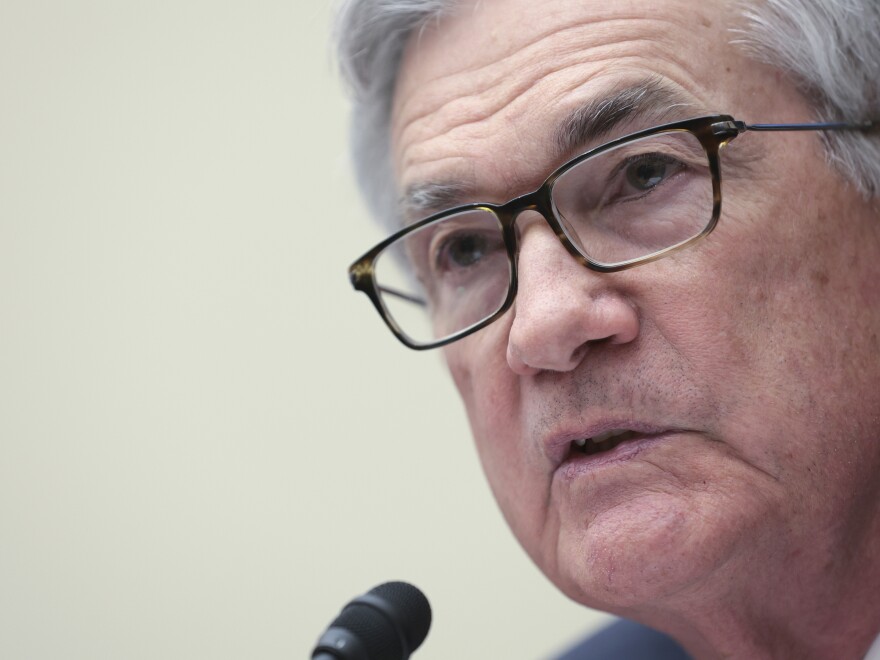Federal Reserve Chair Jerome Powell said on Wednesday the central bank is on track to start raising interest rates this month — likely by a quarter percentage point — in an effort to combat inflation, which is the highest it's been in nearly 40 years.
But the Fed will proceed with caution, Powell told the House Financial Services Committee, as Russia's invasion of Ukraine adds more uncertainty to the economic outlook.
"The economics of these events are highly uncertain," Powell said. "So far, we've seen energy prices move up further and those increases will move through the economy and push up headline inflation, and also they're going to weigh on spending."
The average price of gasoline in the U.S. approached $3.66 per gallon on Wednesday. Rising energy prices have been a significant driver of annual inflation, which hit 7.5% in January – the highest level since 1982.
"Inflation is too high. We understand that," Powell said. "It's going to take some time, but we're going to get it back under control."
Powell says it's too soon to tell on Ukraine
Powell said it's too soon to know how large or long-lasting price increases tied to events in Ukraine will be, so he and his colleagues on the central bank's rate-setting committee are prepared to be flexible.
"We're never on auto-pilot," Powell said. "Those of us on the committee have an expectation that inflation will peak and begin to come down this year. And to the extent that inflation comes in higher or is more persistently high than that, then we would be prepared move more aggressively."
Forecasters expect the Fed to impose additional interest rate hikes later this year in an effort to cool red-hot consumer demand, which has outstripped supply and driven prices sharply higher.

Republican are on the attack on inflation
Republican lawmakers on the committee blamed the Biden administration and the $1.9 trillion rescue package passed by Congress last year for fueling high inflation.
Democrats pushed back, saying federal spending also contributed to a speedy economic recovery and a sharp drop in unemployment.
Powell, who generally tries to steer clear of partisan fights, said both Congress and the Fed had moved aggressively to prop up the economy during the pandemic--with mixed results.
"We turned our dials as hard as we could. So did you," Powell said, referring to the Fed's rock-bottom interest rates and aggressive spending by Congress. "The economy did benefit from that. We have the strongest economy in the world now. But no doubt, part of what we did and what Congress did — without naming any particular laws — is also part of the reason why inflation is high now."
Powell's confirmation process is still on hold
President Biden has nominated Powell for a second term as Fed chair. Biden has also named three new members of the central bank's governing board. The nominations are currently stalled in the Senate Banking Committee over GOP opposition to Biden's nominee to be the Fed's top bank regulator — Sarah Bloom Raskin.
During Tuesday's State of the Union address, Biden urged senators to confirm his picks for the central bank.
Democrats on the House committee blasted what they see as stalling tactics by Senate Republicans.
"Now is not the moment for obstruction, delay and gamesmanship," said committee chairwoman Maxine Waters, D-Calif. "This will undermine our recovery from the pandemic and place our economy and financial stability at risk."
Copyright 2023 NPR. To see more, visit https://www.npr.org.




